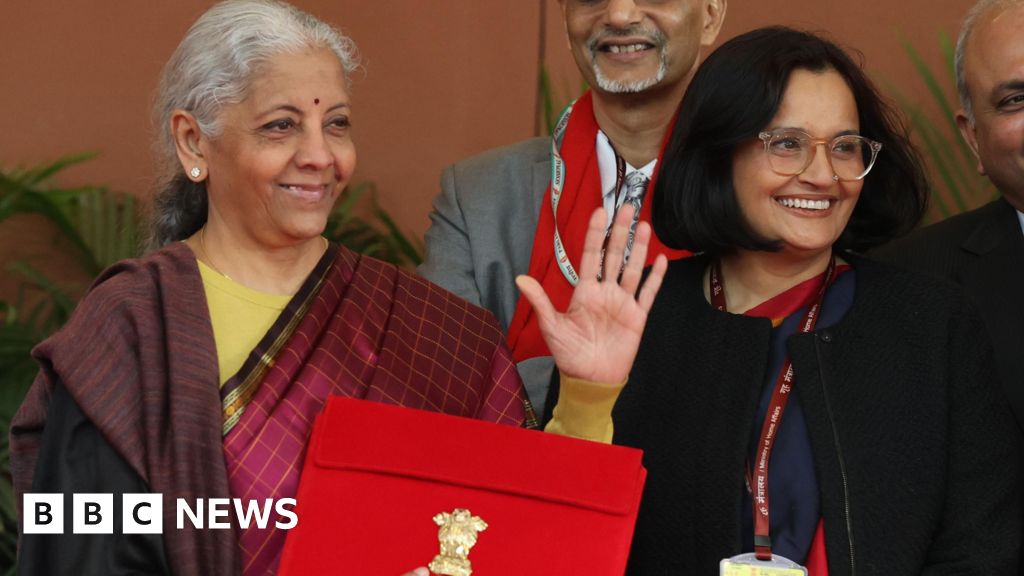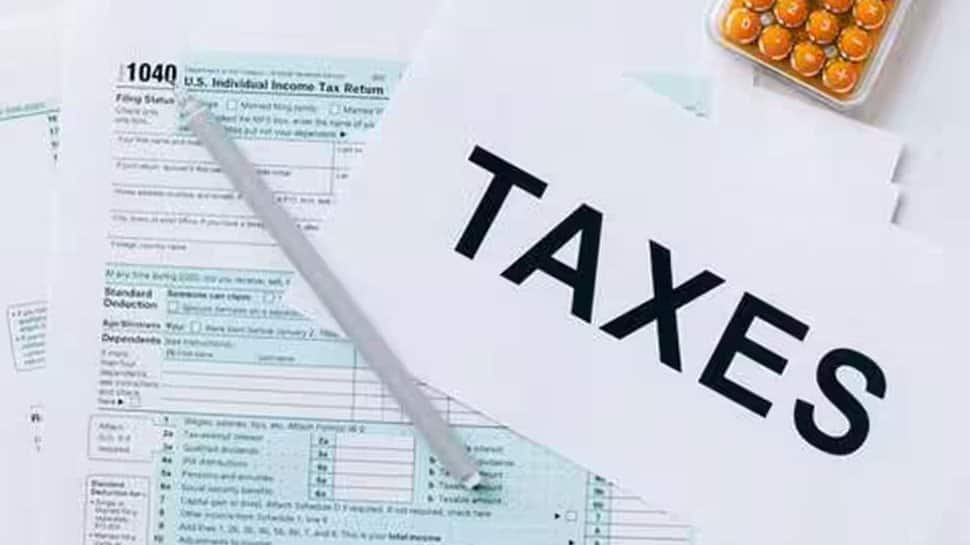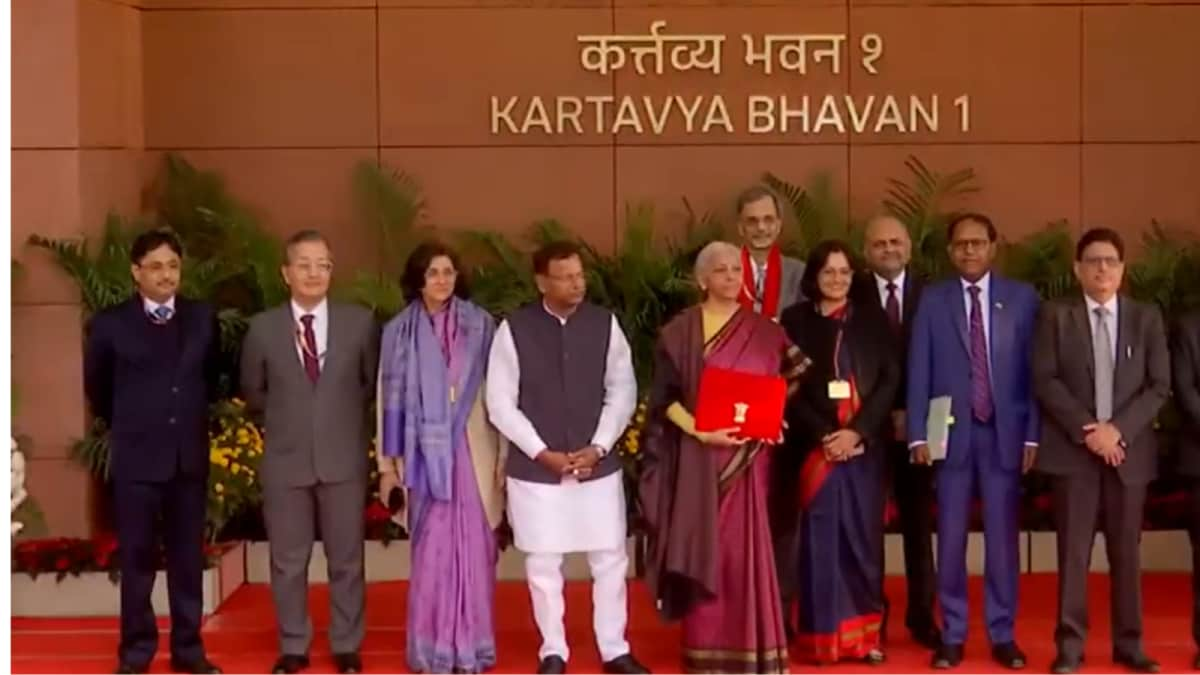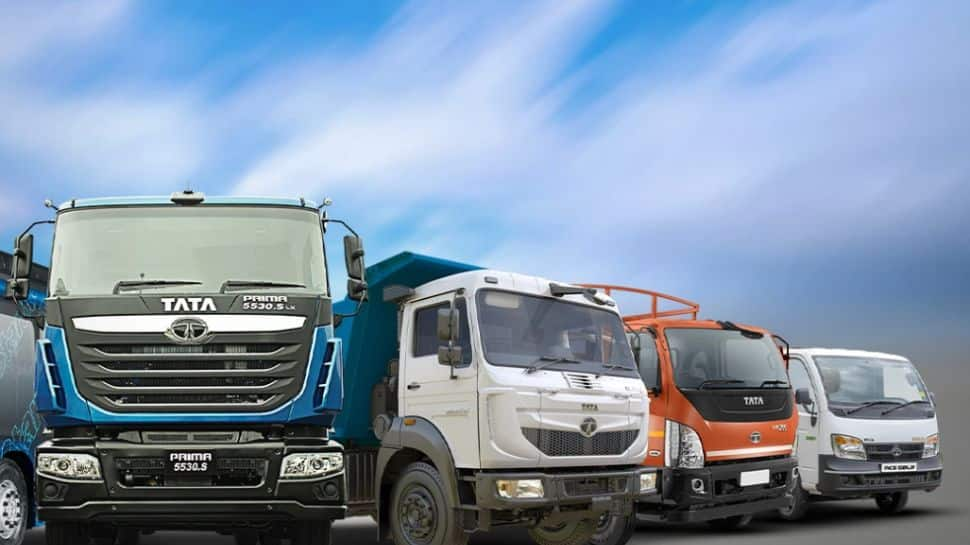Business
‘GST cut to ease entry level stress,’ says Godrej Enterprises executive director – The Times of India

MUMBAI: The rejigging of GST slabs will make products more affordable for consumers, easing stress for the entry level market segment, said Nyrika Holkar, executive director at Godrej Enterprises Group (GEG), which is expecting reduction in taxes to give a boost to festive purchases. The move, Holkar said, will also push premiumisation. Availability of financing options has made it easy for consumers to buy products without paying for it upfront and lower taxes will only put more money in the hands of people, aiding spending. “The change in GST for appliances is very positive for us. It will put less strain on consumers, the entry level segment of the middle class remains stressed today and we should see that segment picking up in the festive period. Today, appliances (ACs) shouldn’t be discretionary purchases; given the climatic shifts and other factors, they have become essential,” Holkar said.For GEG, which has four consumer businesses, the appliances segment comprising AC portfolio will benefit from the GST reset. ACs which were earlier taxed at 28% have been placed under the 18% tax slab, broadening its accessibility for a larger share of low and middle-income households. The appliances business, in which Godrej competes with a mix of local and global players such as Tata’s Voltas, Samsung and LG, makes up for about 30% of the group’s revenues. In India, penetration of ACs stand at 10%. GEG’s appliances portfolio includes dishwashers, which too will see a reduction in tax although the share of sales is not high.For GEG, which has been premiumising its consumer portfolio across appliances and furniture, the GST boost provides an opportunity to expand its market share. India Inc is hopeful that lower taxes will give a leg up to broader consumption as consumers will be able to spend more. GEG is stepping up omni-channel play in its Interio (furniture) business which has set a target of doubling revenues to Rs 10,000 crore in three years. The strategy will be to build new store formats as consumers become more experiential and strengthen its play online (own website) which enables companies to reach more consumers.In a market where online platforms such as Amazon and Flipkart are rapidly innovating and 10-minute delivery players are rewriting the rules, competition for legacy companies has intensified. There is a change in the way people today buy and browse, said Holkar, and GEG will step up its online play. “More than 80% of searches today start online. We will also shorten our delivery time,” Holkar said. Following the Godrej Family’s split last year, GEG refreshed its brand identity and accelerated digital transformation. On Tuesday, the group also launched a refreshed brand identity for the Interio business.
Business
Budget 2026: India pushes local industry as global tensions rise

India’s budget focuses on infrastructure and defence spending and tax breaks for data-centre investments.
Source link
Business
New Income Tax Act 2025 to come into effect from April 1, key reliefs announced in Budget 2026

New Delhi: Finance Minister Nirmala Sitharaman on Sunday said that the Income Tax Act 2025 will come into effect from April 1, 2026, and the I-T forms have been redesigned such that ordinary citizens can comply without difficulty for ease of living.
The new measures include exemption on insurance interest awards, nil deduction certificates for small taxpayers, and extension of the ITR filing deadline for non-audit cases to August 31.
Individuals with ITR 1 and ITR 2 will continue to file I-T returns till July 31.
“In July 2024, I announced a comprehensive review of the Income Tax Act 1961. This was completed in record time, and the Income Tax Act 2025 will come into effect from April 1, 2026. The forms have been redesigned such that ordinary citizens can comply without difficulty, for) ease of living,” she said while presenting the Budget 2026-27
In a move that directly eases cash-flow pressure on individuals making overseas payments, the Union Budget announced lower tax collection at source across key categories.
“I propose to reduce the TCS rate on the sale of overseas tour programme packages from the current 5 per cent and 20 per cent to 2 per cent without any stipulation of amount. I propose to reduce the TCS rate for pursuing education and for medical purposes from 5 per cent to 2 per cent,” said Sitharaman.
She clarified withholding on services, adding that “supply of manpower services is proposed to be specifically brought within the ambit of payment contractors for the purpose of TDS to avoid ambiguity”.
“Thus, TDS on these services will be at the rate of either 1 per cent or 2 per cent only,” she mentioned during her Budget speech.
The Budget also proposes a tax holiday for foreign cloud companies using data centres in India till 2047.
Business
Budget 2026 Live Updates: TCS On Overseas Tour Packages Slashed To 2%; TDS On Education LRS Eased

Union Budget 2026 Live Updates: Union Budget 2026 Live Updates: Finance Minister Nirmala Sitharaman is presenting the Union Budget 2026-27 in Parliament, her record ninth budget speech. During her Budget Speech, the FM will detail budgetary allocations and revenue projections for the upcoming financial year 2026-27. Sitharaman is notably dressed in a Kanjeevaram Silk saree, a nod to the traditional weaving sector in poll-bound Tamil Nadu.
The budget comes at a time when there is geopolitical turmoil, economic volatility and trade war. Different sectors are looking to get some support with new measures and relaxations ahead of the budget, especially export-oriented industries, which have borne the brunt of the higher US tariffs being imposed last year by the Trump administration.
On January 29, 2026, Sitharaman tabled the Economic Survey 2025-26, a comprehensive snapshot of the country’s macro-economic situation, in Parliament, setting the stage for the budget and showing the government’s roadmap. The survey projected that India’s economy is expected to grow 6.8%-7.2% in FY27, underscoring resilience even as global economic uncertainty persists.
Budget 2026 Expectations
Expectations across key sectors are taking shape as stakeholders look to the Budget for support that sustains growth, strengthens jobs and eases financial pressures:
Taxpayers & Households: Many taxpayers want practical improvements to the income tax structure that preserve simplicity while supporting long-term financial planning — including broader deductions for home loan interest and diversified retirement savings options.
New Tax Regime vs Old Tax Regime | New Income Tax Rules | Income Tax 2026
Businesses & Industry: With industrial output and investment showing resilience, firms are looking for policies that bolster capital formation, ease compliance, and expand infrastructure spending — especially in manufacturing and technology-driven sectors that promise jobs and exports.
Startups & Innovation: The startup ecosystem expects incentives around employee stock options and capital access, along with regulatory tweaks that encourage risk capital and talent retention without increasing compliance burdens.
Also See: Stock Market Updates Today
The Budget speech will be broadcast live here and on all other news channels. You can also catch all the updates about Budget 2026 on News18.com. News18 will provide detailed live blog updates on the Budget speech, and political, industry, and market reactions.
We are providing a full, detailed coverage of the union budget 2026 here, with a lot of insights, experts’ views and analyses. Stay tuned with us to get latest updates.
Also Read: Budget 2026 Live Streaming
Here are the Live Updates of Union Budget 2026:
-

 Fashion1 week ago
Fashion1 week agoSouth Korea tilts sourcing towards China as apparel imports shift
-

 Sports5 days ago
Sports5 days agoPSL 11: Local players’ category renewals unveiled ahead of auction
-

 Sports1 week ago
Sports1 week agoWanted Olympian-turned-fugitive Ryan Wedding in custody, sources say
-

 Tech1 week ago
Tech1 week agoStrap One of Our Favorite Action Cameras to Your Helmet or a Floaty
-

 Entertainment1 week ago
Entertainment1 week agoThree dead after suicide blast targets peace committee leader’s home in DI Khan
-

 Tech1 week ago
Tech1 week agoThis Mega Snowstorm Will Be a Test for the US Supply Chain
-

 Sports1 week ago
Sports1 week agoStorylines shaping the 2025-26 men’s college basketball season
-

 Fashion1 week ago
Fashion1 week agoSpain’s apparel imports up 7.10% in Jan-Oct as sourcing realigns








